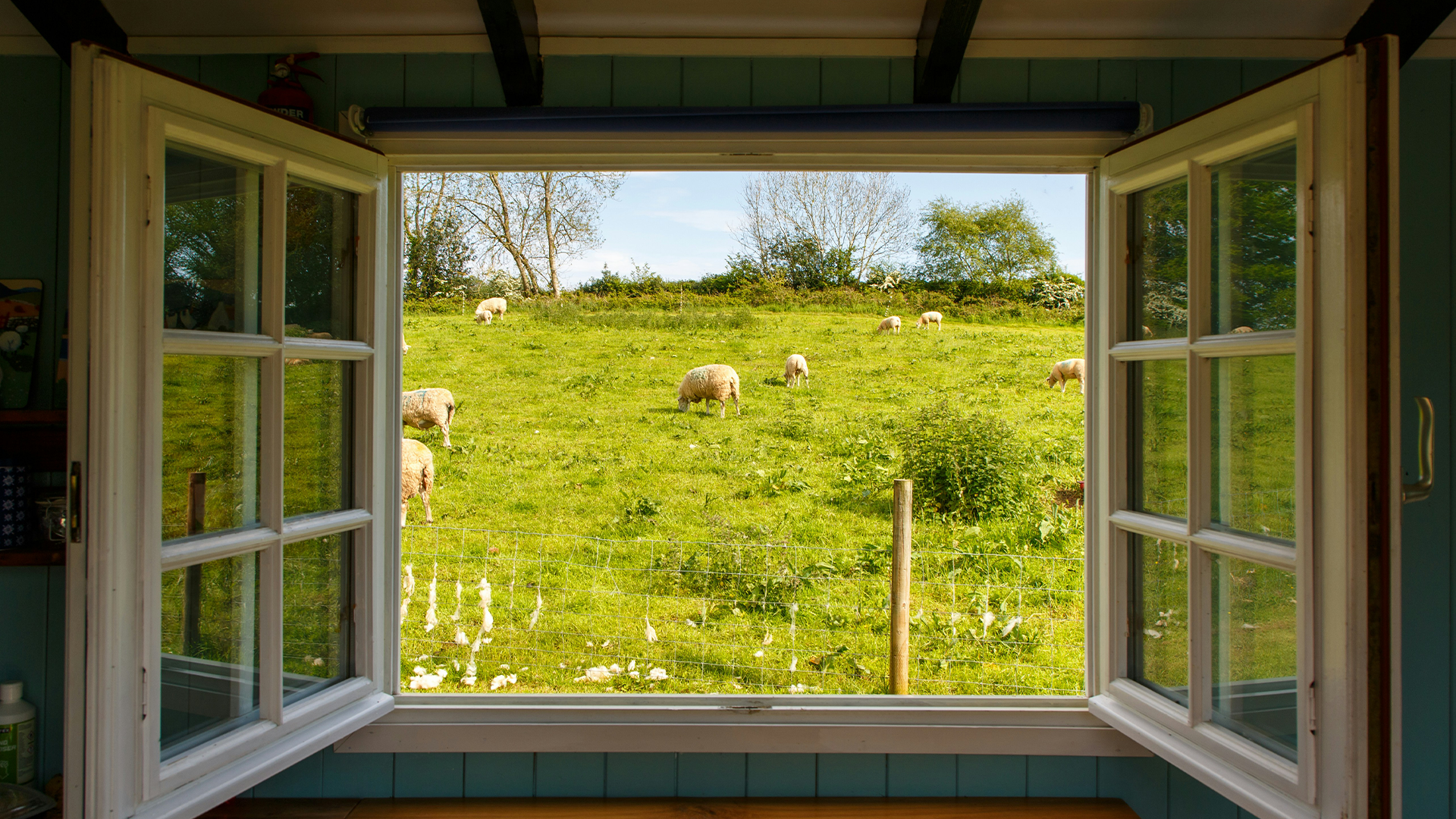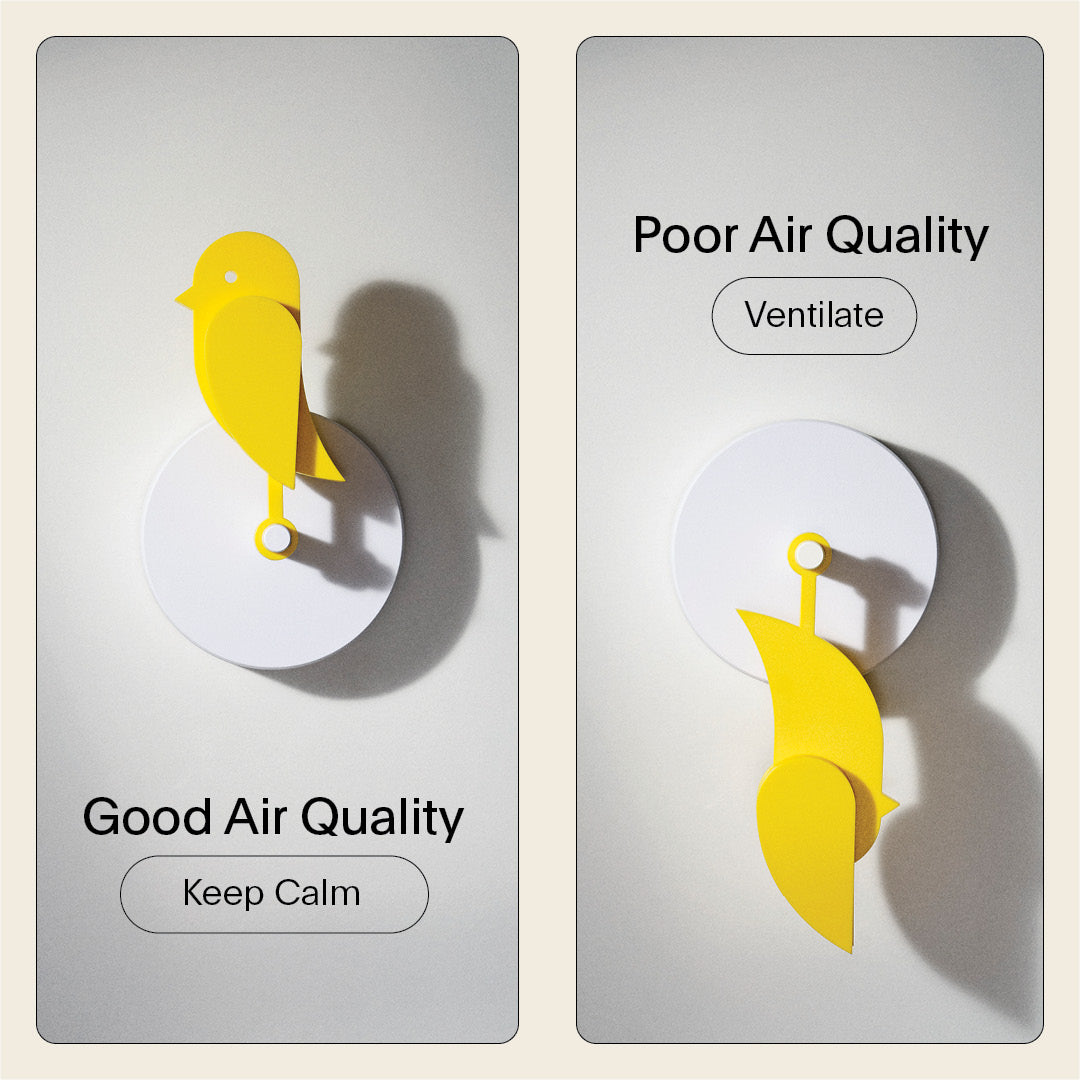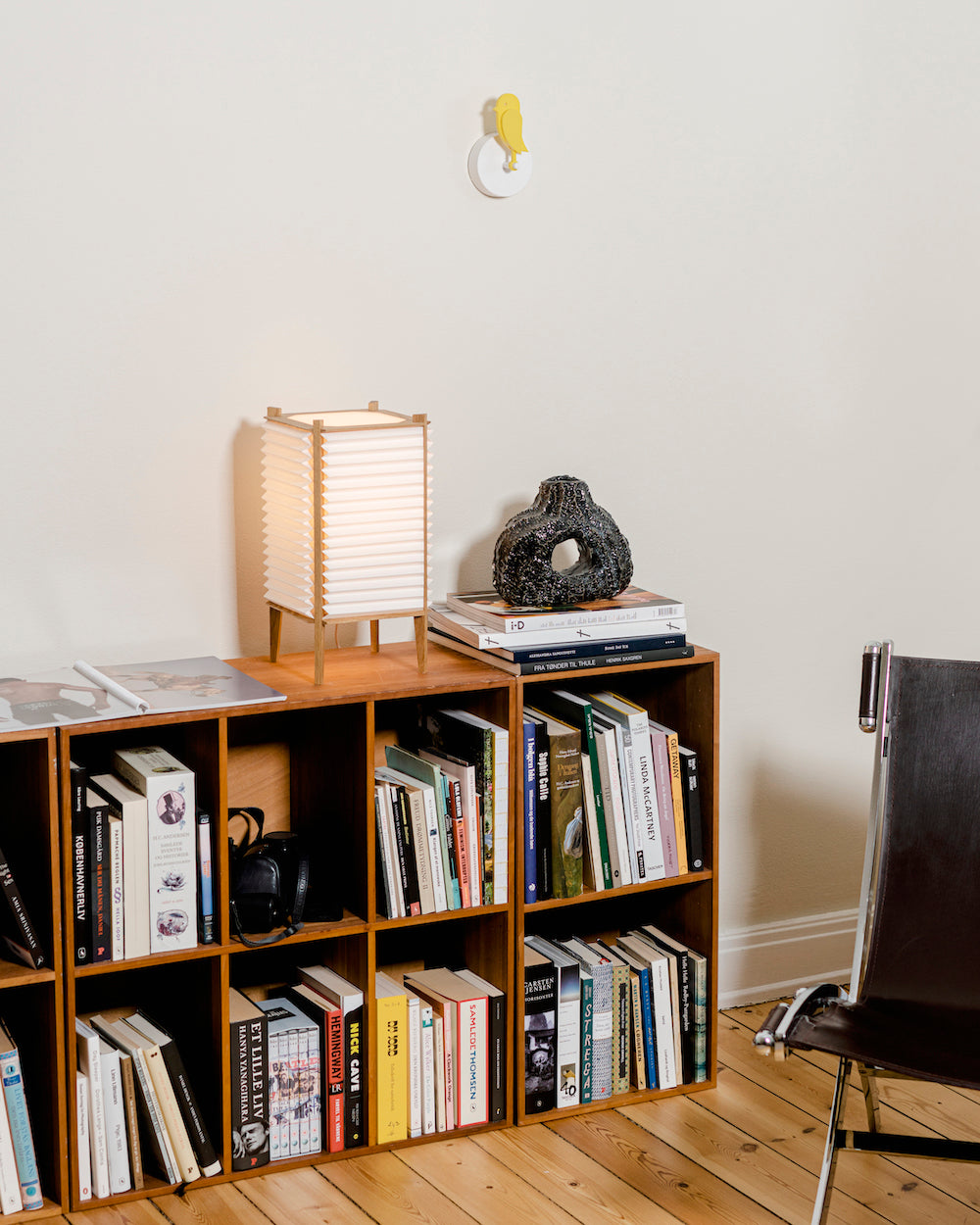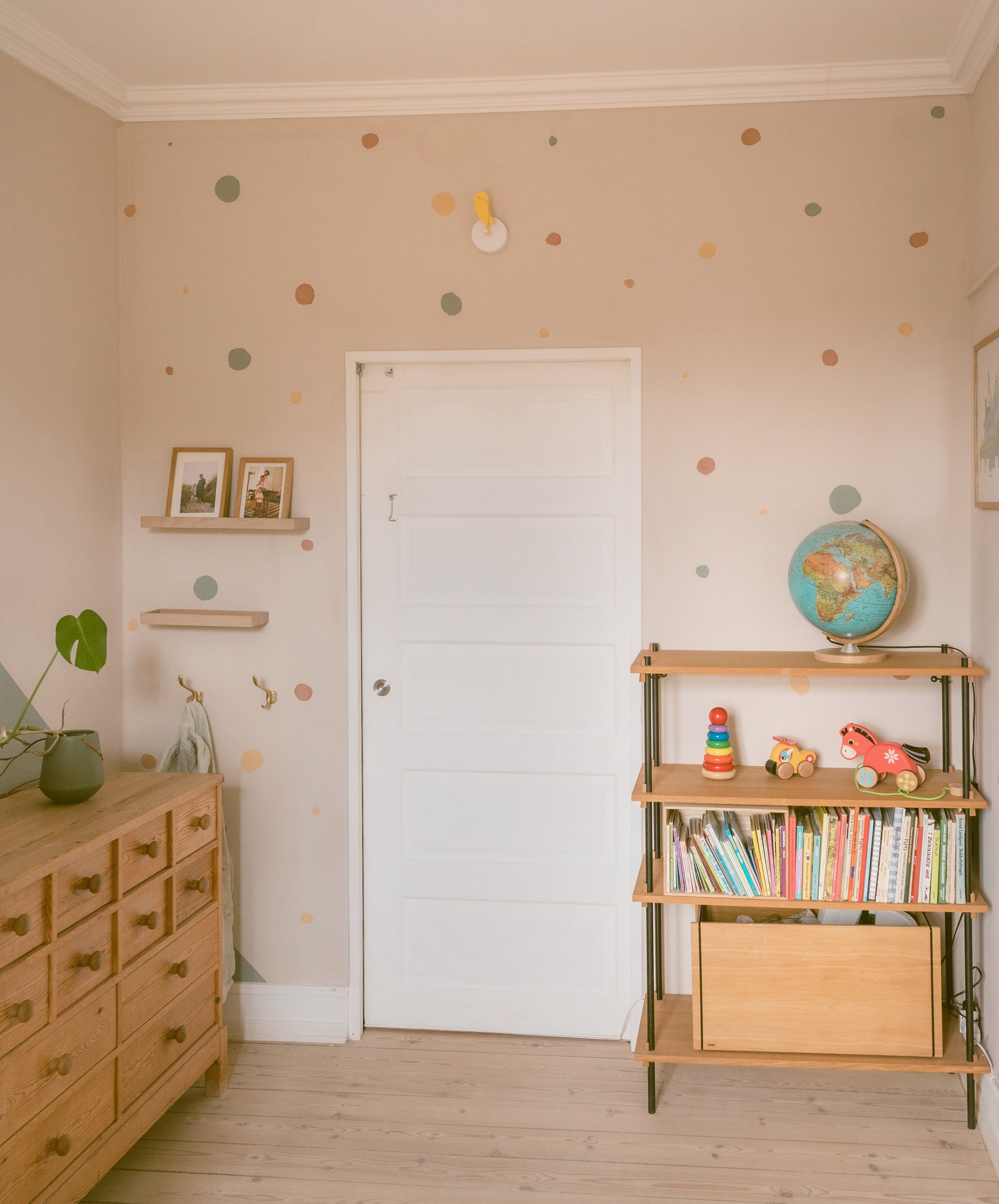Written by Hans Augustenborg
May 15th, 2024 — 5 minute reading time

Do you remember to ventilate your home every day? And do you do it often enough?
According to the Health Authority and the WHO, you should ventilate with drafts several times a day. But most of us don't do it enough.
A study shows that 76% of Danes do not ventilate their homes enough. And those who ventilate several times a day rarely do it in the most effective way.
In this article, we dive into how ventilation helps improve your indoor climate. You'll also get 5 good tips on how to ventilate best.
Ventilation is the Simple Answer to Poor Indoor Climate
Are you aware that you spend 90% of your time indoors? And for most of us, it's in a poor indoor climate because we're not good enough at ventilating.
It's a problem you might not notice in your everyday life because you don't realize that the air quality in your home is decreasing.
The solution is simple: ventilation.
With ventilation, you remove moisture, particles, and the CO2 we exhale from your home - and that's crucial for your indoor climate.
Birdie helps you measure air quality. When the air quality deteriorates, Birdie loses its chirp and falls dead. Only when you ventilate and get fresh air into the room does it rise like the Phoenix.
This gives you the best conditions for creating a healthy and comfortable indoor climate - whether it's at home, in the office, or in the classroom.
Inadequate Ventilation Can Affect Your Health
Did you know that pollution in your home is often greater than on the busiest city streets?
That's what some of the world's leading indoor climate researchers say in an article in Weekendavisen.
Forgetting to ventilate or not doing it enough can affect your health.
It can increase the risk of:
- Headaches
- Allergies
- Asthma
- Sleep problems
- Impaired learning and performance
According to an article in Weekendavisen, a sea of particles from wood stoves, cooking fumes, and candles swirls around our homes. The small ultrafine particles find their way into our airways - and once they're inside our bodies, they can be harmful to our health.
That's why Pawel Wargocki, an associate professor at DTU Sustain, points out in the article that we should give the same focus to indoor climate for our health as we do to diet, exercise, smoking, and other basic aspects of our daily lives:
"We should think of clean air as we think of clean water and fresh food. We don't compromise on those, and we shouldn't compromise on indoor climate either."
Ventilate with Drafts - How Long Should You Ventilate?
You should ventilate with drafts three times a day for 5-10 minutes each time. In that time, you'll replace the old air with new and clean air.
To ensure a good indoor climate and avoid mold, it's important to ventilate with drafts several times a day.
Ventilation through a single window is not effective enough
Do you think it's necessary to ventilate with drafts?
Yes, it is.
If you just open a window in a single room, it takes a long time to replace the air. But of course, it's better than not opening a window at all.
Often it can be difficult to know when enough of the old and used air has gone out. With a meter, you'll find that it doesn't take more than a couple of minutes of effective drafts. Then you don't have to freeze for too long while making sure to get fresh air into your home.
5 Tips for Your Ventilation
Fortunately, there are ways to create the best conditions for healthy air quality and a good indoor climate in your home.
Here are 5 good tips:
1. Ventilate with drafts
To get enough fresh air in, you need to create drafts. You don't do that by just opening a single window or opening it slightly - instead, you should open a window on each side of your home.
That way, you flush out the used air so new, fresh air can come in. It's the most effective way to ventilate - both for your health and your heating bill.
2. Let in new air morning and evening
It's important to ventilate in the morning because we also emit particles while we sleep. So remember to get fresh air into the bedroom.
Most people are best at ventilating in the morning but not so good at remembering it in the evening.
But it's just as important to get new air into your home before bedtime. Throughout the day, particles accumulate in the air, so it's good to get fresh air for bedtime, where you potentially lie for eight hours or more - if you remember your beauty sleep.
Make it a habit to create drafts three times a day. Preferably in the morning, at noon (or after cooking), and in the evening
3. Get fresh air after cooking and using candles
Both cooking and candles release many particles into the air. Therefore, it's important that you ventilate thoroughly after cooking in the kitchen or enjoying candlelight.
During cooking, it's also a good idea to turn on the range hood as a help to draw the moist and warm air out of the room.
4. Help moisture out of your home
After showering, it's important that you help moisture and steam out of the bathroom. Make sure to ventilate thoroughly by opening a window and starting your ventilation system if you have one.
You should also always remember to close the door to the bathroom when you're done showering. Otherwise, the moisture will spread to the rest of the home - and then you risk mold.
5. Use Birdie as assistance
With Birdie, you always have control over when it's time to ventilate.
Poor indoor climate is an invisible problem - Birdie is a visible solution that can make a big difference in your everyday life.
Should you ventilate when you have a ventilation system?
With fresh air from doors and windows, you get natural ventilation. But you can also replace the old air through a ventilation system. It's called mechanical ventilation.
In principle, you don't need to ventilate if you have a ventilation system. It ensures that the air is always fresh and clean.
Mechanical and natural ventilation can be a good duo to complement each other, so you get the best possible indoor climate.
However, ventilation through windows provides the same effect - and it's even free air.
How to Know You Need to Ventilate More
There are several signs that you should ventilate more than you already do.
Here are three of them:
1. Sniff and smell. Does it smell in your home? If it starts to smell stale in your home, open the windows wide - more often than you do now
2. Check if your windows are fogged up. If there's a lot of condensation at the edge of your window, it means more ventilation is needed.
3. Let Birdie signal you about air quality. Is it hanging with its beak? That's a clear sign that you need to ventilate.
However, you're not sure if the air in your home is good enough if none of the indicators are present in your home. Poor air quality is unfortunately an invisible problem, which you can fortunately make visible with Birdie.
Remember ventilation in winter
It's cold when Old Man Winter knocks on doors and windows. And it also prevents many from opening them.
But it's important that you also remember ventilation in winter. When it's cold outside, you can end up with even greater moisture damage in your home if you don't ventilate well enough.
















